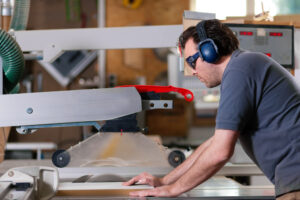Is driving with the windows down harmful to your hearing? Does it save on gas? Should you drive with your windows up or down? Let’s take a new look at these concerns.
Imagine this: It’s a serene early morning, the clock ticking at 7:45 AM. As the freeway stretches before you, nearly free of traffic, you settle into an unhurried pace of 55 miles per hour, feeling the refreshing wind rush in through your rolled-down windows. On such a picturesque day, using the car’s air conditioner seems unnecessary, doesn’t it? What’s the point of wasting valuable fuel?
But the question is: Is driving with the windows rolled down potentially harmful to your ears?
What the research indicates about driving with open windows
You don’t think it’s very loud. Researchers in the UK conducted experiments with numerous vehicles, from Mazdas to Aston Martins, during non-peak hours at speeds of 50, 60, and 70 MPH.
Their findings were consistent: irrespective of the vehicle model or speed, driving with windows down exposed the driver to a near-constant noise level of 89 decibels.
Does this noise level pose a risk of permanent hearing damage?
Exposure to 85 decibels for 8 hours can cause irreversible harm to one’s hearing.
In congested traffic conditions where exposure exceeds 100 decibels, hearing damage can occur within a mere 15 minutes.
What contributes to escalated noise with open windows?
Numerous elements can boost the sound levels even while your vehicle may already seem noisy.
A guide to engines and vehicle styles
The majority of gas engines generate about 85 decibels of noise due to the rapid combustion in their cylinders, representing roughly 80% of gas-powered vehicles. However, hybrids, electric cars, or smaller 4-cylinder engines may provide a quieter ride. On the other hand, sports cars like Ferraris are capable of more than 100 decibels of noise, particularly when driving in lower gears.
Wind resistance
The whooshing and hissing sounds caused by wind passing over your car can substantially add to the overall noise level, even in relatively quiet cars. Studies have revealed that bicyclists face about 85 decibels of wind resistance at only 15 MPH, rising to 120 decibels at 60 MPH. Given that automobiles experience even greater wind resistance, driving with windows open can indeed impact your hearing.
Heavier traffic results in louder sounds
Every car that goes by in multiple lanes increases the total volume level. Along with the noise of the engine, you are also exposed to the rush of air produced by other vehicles passing by, which contributes to a louder overall environment.
How to minimize risks and ensure safe driving strategies
Reduce the threat of hearing loss while driving with windows open by following these guidelines.
- Remember to take breaks while on long road trips by going between having the windows up and down.
- For convertible owners, shutting the windows while keeping the top down can decrease sound to safer levels.
- Use smartphone applications to track the levels of noise in normal traffic situations (avoid using them when driving a vehicle).
- To avoid being exposed to loud noises over 100 decibels for an extended time period, it is advisable to keep your windows up when driving in heavy traffic.
- Refrain from drowning out traffic noise with loud music, as it can exacerbate hearing damage.
- If riding a motorcycle or bicycle, purchase helmets developed to reduce traffic noise.
- Regularly track your hearing health, especially if you’ve been habitually driving with windows down.
In summary, driving with windows open subjects you to numerous sources of noise, including engine and wind noise, likely impacting your hearing health.
By adopting precautionary precaustions, you can protect your hearing while enjoying the freedom of open-road driving.
If you are worried about hearing loss caused by noise, please get in touch with us today.





